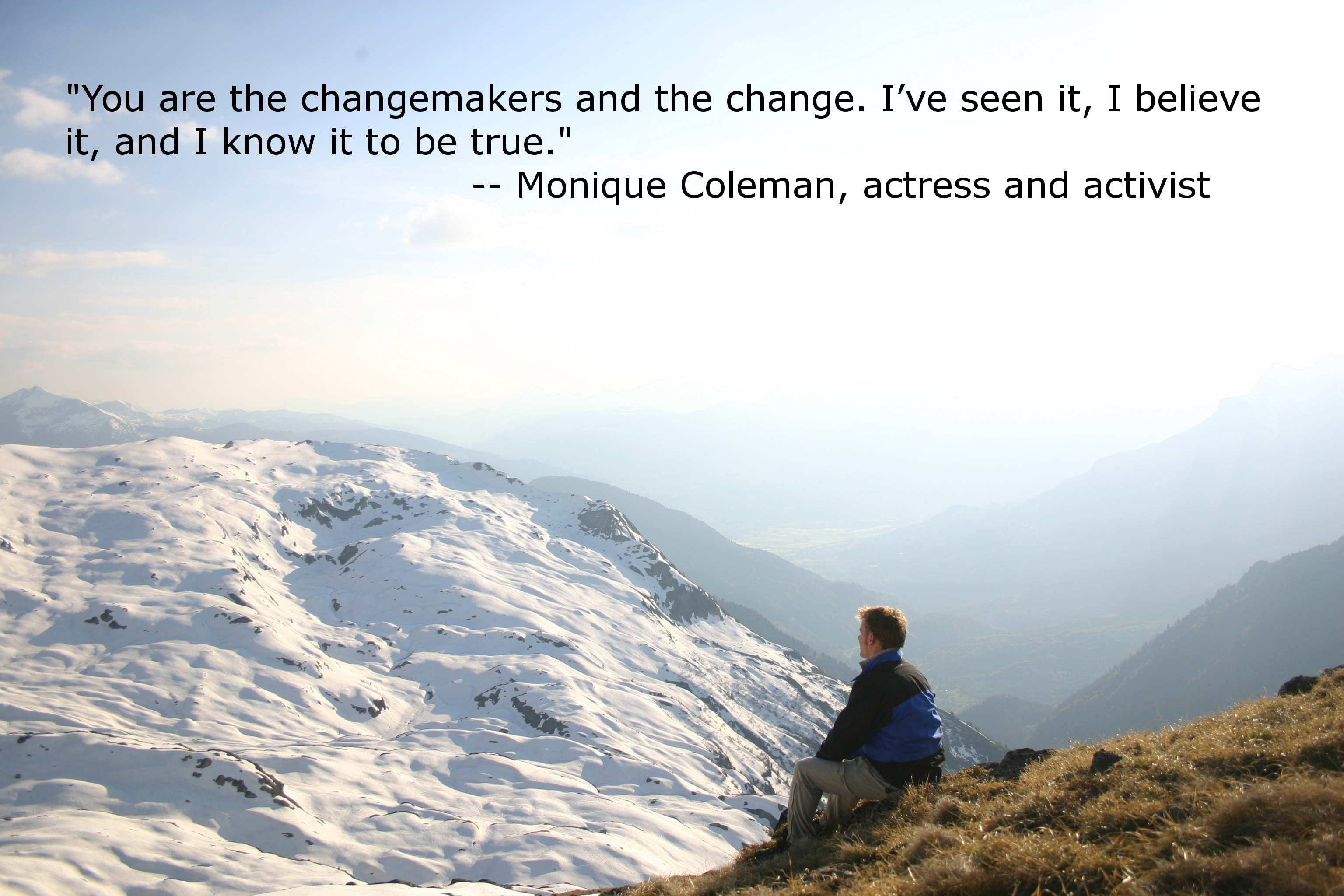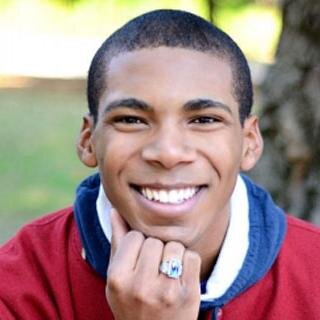
Quoted in BE A CHANGEMAKER, chapter 1, from a speech given at We Day Seattle on March 27, 2013, attended by the author. Visit Monique Coleman’s official web page for more information about her speaking and humanitarian activities.

I recently received this email from a middle-school teacher:
I wanted to let you know that one of my students has taken your book to heart. He’s been carrying it with him for six weeks, and he is in the process of trying to start a nature club at school. He is a super hard worker, and a wonderful, bright, sensitive 12-year-old boy–the type who might really make a dent in some of this world’s problems. He is passionate about this endeavor, but he doesn’t feel that he’s being taken seriously: adults are assuming he’s not going to work hard enough, he feels like things aren’t moving fast enough, and he’s disheartened. Still, he recently cited your book to me, saying, “She says sometimes it can take forever, and then sometimes things happen out of the blue,” so your words matter to him.
In the rush and hurry of getting through my inbox, this message brought me to a full stop. I’ve always said that I will feel like I’ve achieved success when I hear from one reader that my work mattered to them. Though not directly from the reader himself, this message from such a caring, dedicated, clearly amazing teacher on her student’s behalf feels every bit as wonderful. Reading this email was an even grander “first” for me than seeing my name in print for the first time, or holding the final book in my hands, or signing stacks of books at an event. This was a real connection with a young reader, a potential shift in the trajectory of this young man’s life that might not have occurred without my work. It’s both humbling and validating.
I have no doubt in the world that this student is indeed the type who might really make a dent in some of this world’s problems. It worries me, though, that even with this supportive teacher clearly on his side, he stills that one of the obstacles he faces is other adults assuming he’s not going to work hard enough. I mean really, what have we got to lose, adults? If they encourage him and he later quits, there’s no harm done: He feels valued and respected, he learns something about himself, and things go back to the way there were before. If they encourage him and he succeeds, the outcome really isn’t all that different: He feels valued and respected, he learns something about himself, and things get a little bit better.
I know that I’ve been guilty of similar reactions with my own children and their ideas. I’ve been too quick to point out what challenges I see and the reasons why their ideas might not be perfectly feasible. I questioned their long-term commitment to the projects they proposed. What I thought was helpful realism, however, wasn’t really that helpful at all. Indeed, what if my “realism” was actually cynicism, and maybe their “fantasies” could have actually worked? We’ll never know, because countless times I’ve inadvertently stopped them in their tracks before they even got started, all in the name of thinking things through and not embarking on something they couldn’t finish.
I think many of us (adults, especially, but kids, too) have become so goal-oriented that we don’t want to do or support anything that doesn’t seem very likely to succeed. We’re overly focused on the results, when so many of the potential benefits come from the process itself. We don’t want to waste time on something that might fail, but we forget that we learn by making mistakes.
If I’d focused on the likelihood of ever getting an email like this one, I would probably never have stuck with the process of honing my craft, revising my drafts, putting myself out there, etc. But if I hadn’t done that, I wouldn’t be the person I am today, and I wouldn’t have received an email from a teacher that brought me to tears.
I’m going to try to do better for my own kids and other young people I interact with, and I hope you’ll commit to trying to support the young changemakers in your life as well. Let’s value their ideas and intentions for what they are, and let go of our expectations or concerns over the results. I have no doubt that, given the right encouragement, they are all the types who might really make a dent in some of this world’s problems. And we need each and every one of them to try.
This is the second post in the series introducing the amazing young people who are profiled in my upcoming book, BE A CHANGEMAKER: HOW TO START SOMETHING THAT MATTERS (Beyond Words/Simon Pulse, September 2014). Today I’m introducing Edward Jiang, founder of StudentRND, and giving some behind-the-scenes details about our in-person interview.

Today, I’m kicking off a series of blog posts that will introduce you to some of the amazing young people who are profiled in my upcoming book, BE A CHANGEMAKER: HOW TO START SOMETHING THAT MATTERS (Beyond Words/Simon Pulse, September 2014). Each of the 18 chapters in the book includes a short piece about how one or more young people changed the world and their experiences with the chapter topic, in particular. I was able to interview most of them in person, via Skype, by phone, or by email, and I have so much more great stuff about them than would fit in the book–sort of like out-takes, only better! I hope you’ll enjoy “meeting” them here and reading more about them and their work.
